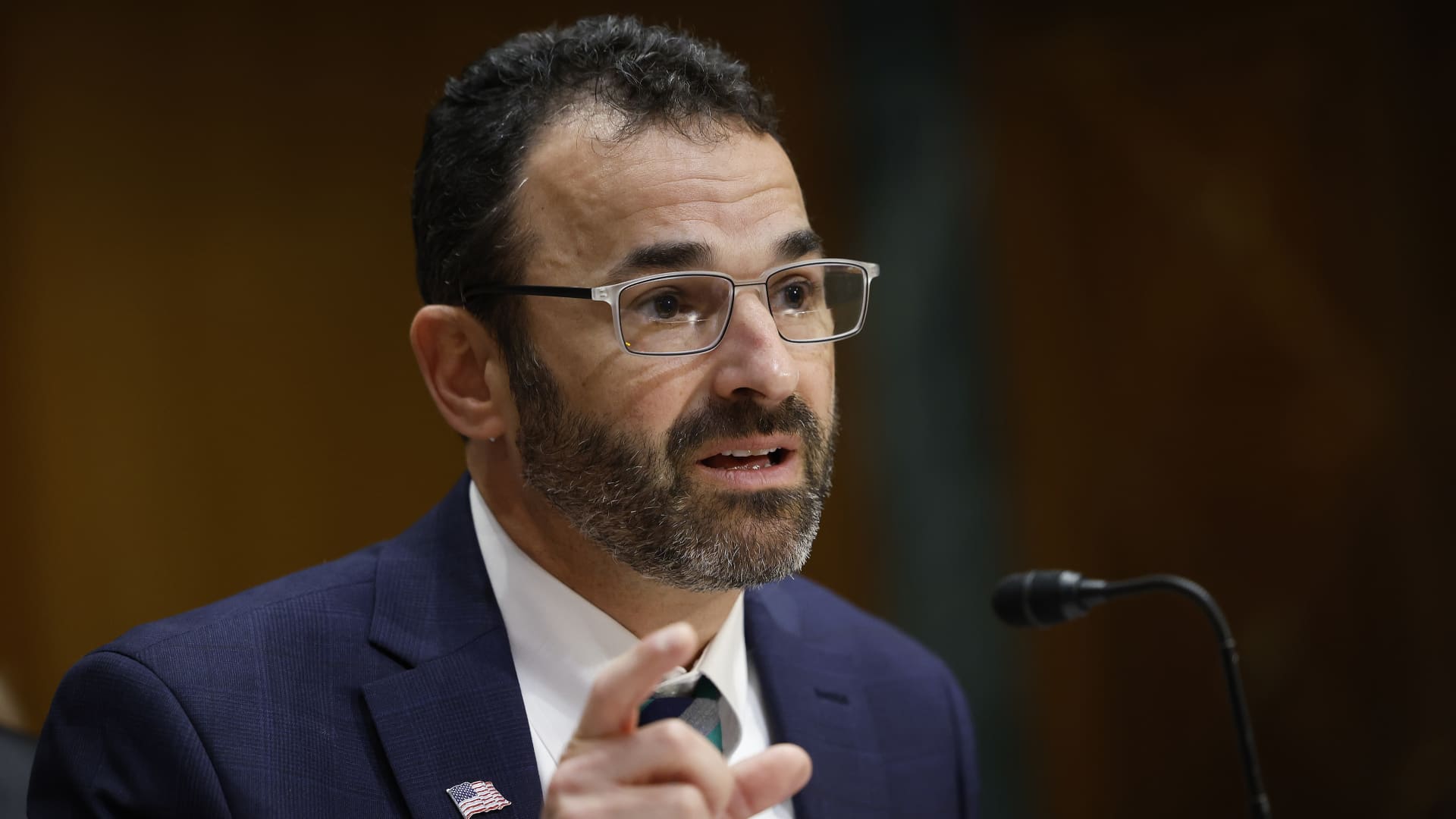Products You May Like
Roughly one year after Congress approved tens of billions in IRS funding, the agency has unveiled plans to crack down on tax preparers with “questionable practices.” The news comes amid heightened scrutiny of a popular small business tax credit.
“We are devoting more resources to addressing unscrupulous preparers who are leading their customers to underreport income or overclaim credits and deductions,” IRS Commissioner Danny Werfel said in a letter sent on Monday to Senate Finance Committee Chair Ron Wyden, D-Ore.
Tax experts say these preparers create issues for filers who may later face an IRS audit or future tax liability. They also cause problems for “good tax preparers” who face pushback from clients for following the rules, said Josh Youngblood, an enrolled agent and owner of The Youngblood Group, a Dallas-based tax firm.
“I think it’s something that [the IRS] definitely needs to make a high priority,” he added.
More from Personal Finance:
IRS will ‘substantially’ reduce audits on low-income tax credit
How IRS plan to use AI may affect wealthy taxpayers
Here’s what tax pros recommend after the IRS halts processing for small business tax credit
IRS scrutiny of the employee retention credit
The plan is part of the agency’s elevated focus on employee retention credit claims, according to April Walker, lead manager for tax practice and ethics with the American Institute of CPAs.
A pandemic-era tax break, the employee retention credit, or ERC, was designed to support small businesses that kept employees on payroll during shutdowns or revenue declines in 2020 and 2021.
Worth thousands per employee, the program sparked a cottage industry of specialist firms pushing businesses to amend payroll returns to claim the complicated tax break.
Roughly one week ago, the IRS announced plans to halt processing for the popular credit amid a “surge of questionable claims,” a move that the AICPA applauded. The processing pause for new claims will last at least through the end of 2023.
IRS shifting enforcement to higher earners
Meanwhile, the agency has also announced plans to reduce the number of audits on lower-income filers, while targeting unpaid taxes from higher earners, partnerships and large corporations.
In the same letter, Werfel shared IRS plans to “substantially” decrease the volume of so-called correspondence audits, or exams conducted by mail, for certain credits. He included the earned income tax credit, a tax break claimed by low- to moderate-income filers, which has been prone to mistakes due to complex eligibility requirements.
It’s long been recognized that correspondence audits have a lot of problems.Chuck MarrVice president for federal tax policy at the Center on Budget and Policy Priorities
“It’s long been recognized that correspondence audits have a lot of problems,” said Chuck Marr, vice president for federal tax policy at the Center on Budget and Policy Priorities, noting that many filers don’t receive or understand the notices.
During fiscal year 2020, more than $16 billion of the credit was claimed improperly — over one-quarter of the total paid — according to the National Taxpayer Advocate’s 2022 report to Congress.
While IRS audit rates have dropped overall, the rates have declined more slowly for filers claiming the earned income tax credit than higher earners. “The IRS audits a higher percentage of taxpayers with the earned income tax credit than any other taxpayers, except those with at least $5 million of total positive income,” National Taxpayer Advocate Erin Collins wrote in her 2022 report.
‘Bad actors’ target tax returns for ‘vulnerable filers’
The agency’s research suggests “bad actors” may disproportionally file tax returns for “vulnerable filers,” such as lower earners, filers of color or those with limited English proficiency, according to Werfel’s letter. He said this may contribute to higher audit rates for these filers.
The IRS in May said Black Americans are significantly more likely to face an audit, confirming findings published by economists from Stanford University, the University of Michigan, the U.S. Department of the Treasury and the University of Chicago.
“Over time, we believe stepped-up efforts to stop unscrupulous preparers that target this population, will lead to higher quality tax preparation and increased return accuracy, thereby reducing the number of individual taxpayers at risk of audit,” Werfel wrote.
